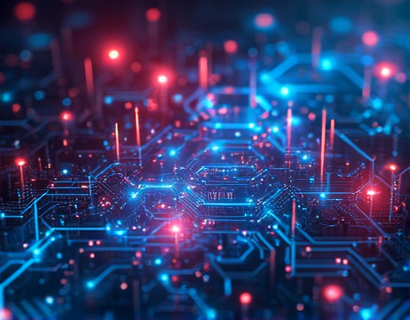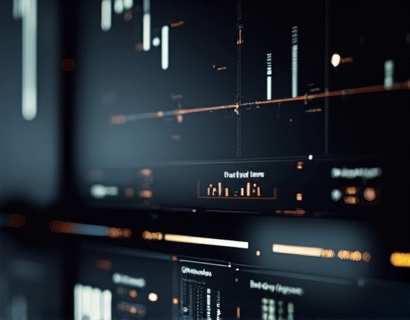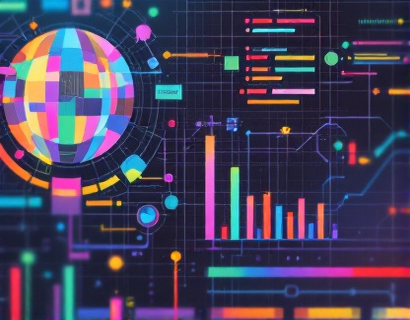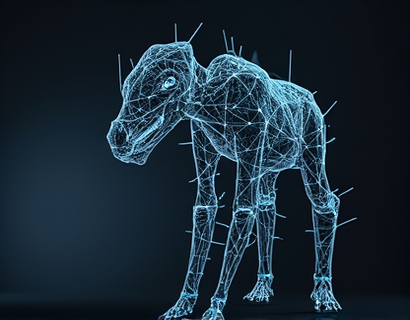Decentralized Authentication: Revolutionizing Business Security and Access with Advanced Technology Solutions
In the rapidly evolving landscape of digital security, businesses are increasingly turning to decentralized authentication solutions to bolster their defenses and streamline access control. These advanced technology solutions offer a paradigm shift from traditional centralized authentication methods, providing robust identity management that ensures both seamless user experiences and stringent data protection. For modern enterprises, the adoption of decentralized authentication is not just a strategic advantage but a necessity to stay ahead in a world where cyber threats are becoming more sophisticated by the day.
The core principle behind decentralized authentication lies in distributing the control and management of user identities across a network of nodes, rather than relying on a single central authority. This approach eliminates the single point of failure that centralized systems are prone to, significantly reducing the risk of large-scale breaches. By leveraging blockchain technology and distributed ledger systems, decentralized authentication solutions create a secure and transparent environment where user identities are verified through consensus mechanisms, ensuring that only authorized individuals gain access to sensitive systems and data.
One of the primary benefits of decentralized authentication is the enhanced security it provides. Traditional authentication methods often depend on centralized databases that store user credentials, making them attractive targets for hackers. In contrast, decentralized systems store identity information across multiple nodes, making it far more difficult for malicious actors to compromise the entire system. Even if one node is breached, the decentralized nature ensures that the attack is contained, and the overall security remains intact. This distributed approach not only fortifies defenses against external threats but also mitigates the risk of insider threats and human error, which are common vulnerabilities in centralized systems.
Moreover, decentralized authentication solutions offer unparalleled flexibility and scalability. As businesses grow and evolve, their security needs change, and traditional systems often struggle to keep pace. Decentralized systems, on the other hand, can easily adapt to new requirements and integrate with various applications and services without the need for extensive reconfiguration. This flexibility is crucial for businesses that operate in dynamic environments, where rapid scaling and frequent updates are the norm. By adopting decentralized authentication, companies can ensure that their security measures remain robust and up-to-date, without the overhead of constant system overhauls.
Another significant advantage of decentralized authentication is the improved user experience it provides. In centralized systems, users often face cumbersome login processes, frequent password resets, and restricted access to resources due to stringent security policies. Decentralized solutions streamline these processes by enabling users to manage their identities autonomously, using secure and private keys. This not only enhances convenience but also empowers users to maintain control over their personal data. The elimination of password-based authentication reduces the likelihood of password-related issues, such as forgotten passwords and phishing attacks, leading to a more seamless and secure user experience.
From a compliance perspective, decentralized authentication aligns well with regulatory requirements aimed at protecting user data. With the implementation of stringent data protection laws like the General Data Protection Regulation (GDPR) and the California Consumer Privacy Act (CCPA), businesses are under increasing pressure to demonstrate robust data management practices. Decentralized authentication solutions inherently support these regulations by providing transparent and auditable identity management processes. Users can have greater visibility into how their data is used and can easily manage their consent, thereby fostering trust and compliance.
Implementing decentralized authentication involves several key components and technologies. At the heart of these solutions is blockchain, a distributed ledger technology that ensures data integrity and immutability. Smart contracts, self-executing contracts with the terms directly written into code, play a crucial role in automating and enforcing authentication processes. These contracts can define access rules, verify identities, and manage permissions without the need for intermediaries, reducing administrative overhead and enhancing security. Additionally, public-key cryptography is fundamental to decentralized authentication, enabling secure and private key exchanges between users and systems.
Decentralized identity (DID) frameworks are another critical aspect of these solutions. DIDs provide a standardized way to represent and manage digital identities on the web, allowing users to own and control their identity data. By using DIDs, businesses can create a decentralized identity ecosystem where users can authenticate across multiple platforms and services without compromising their privacy. This interoperability is essential for creating a seamless and secure digital experience, where users can effortlessly access various services while maintaining full control over their personal information.
The adoption of decentralized authentication is not without its challenges, however. One of the primary hurdles is the need for widespread education and awareness among businesses and users. Many organizations and individuals are still unfamiliar with the concepts and benefits of decentralized systems, leading to resistance in adoption. To overcome this, it is crucial for industry leaders and technology providers to invest in educational initiatives, demonstrating the practical advantages and long-term benefits of decentralized authentication. Demonstrating real-world success stories and case studies can help build confidence and drive broader acceptance.
Technical complexity is another challenge that businesses may face when implementing decentralized authentication solutions. Unlike traditional systems, which often have well-established support and documentation, decentralized technologies are relatively new and can be more complex to set up and manage. However, as the ecosystem matures, more user-friendly tools and platforms are emerging to simplify the implementation process. Organizations can leverage these tools to reduce the learning curve and ensure a smoother transition to decentralized authentication.
From a cost perspective, the initial investment in decentralized authentication may seem higher compared to traditional systems. However, the long-term savings and benefits often outweigh the upfront costs. By reducing the risk of breaches, minimizing administrative overhead, and avoiding costly compliance violations, businesses can achieve significant cost reductions over time. Additionally, the scalability and flexibility of decentralized systems mean that organizations can avoid the expensive overhauls required to adapt to changing security needs.
The future of business security and access control is undeniably moving towards decentralized authentication. As more organizations recognize the advantages of this technology, the market is expected to see increased innovation and adoption. The integration of decentralized authentication with emerging technologies such as artificial intelligence and the Internet of Things (IoT) will further enhance its capabilities, providing even more robust and intelligent security solutions. Businesses that proactively embrace decentralized authentication will not only strengthen their security posture but also position themselves as leaders in digital innovation and customer trust.
In conclusion, decentralized authentication represents a transformative shift in how businesses manage security and access control. By leveraging advanced technologies like blockchain and smart contracts, these solutions offer enhanced security, flexibility, and user convenience. As the digital landscape continues to evolve, the adoption of decentralized authentication will become increasingly vital for organizations seeking to protect their assets, comply with regulations, and deliver exceptional user experiences. Embracing this technology is not just a strategic move but a necessary step towards a more secure and efficient future.











































